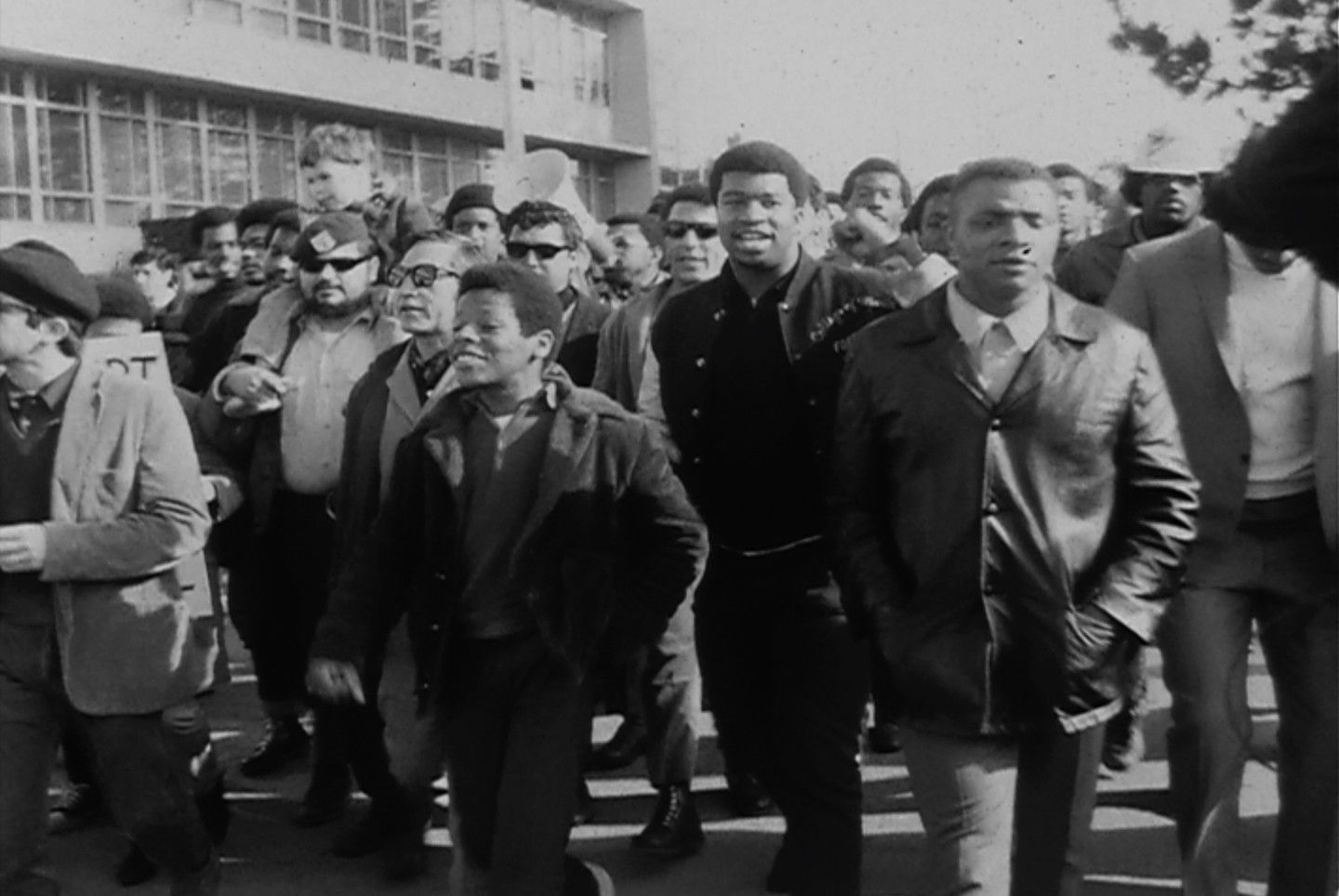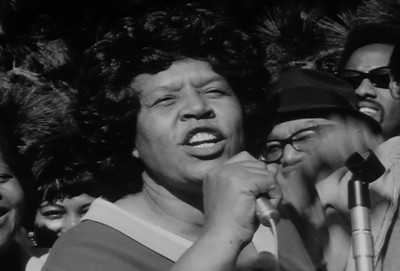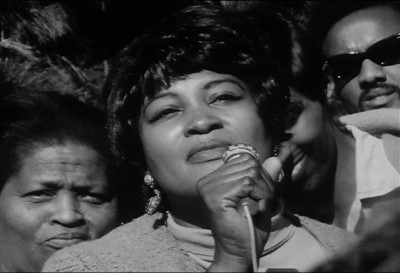To celebrate Black History Month, we will be highlighting clips from the KQED video archive throughout the month of February. All clips have been made available by the Bay Area TV Archive at San Francisco State University.
The above clip features KQED footage taken from three different news reports from Dec. 4, 1968, featuring the African-American community of Bayview/Hunters Point at San Francisco State College, supporting the Black Students Union and Third World Liberation Front in their efforts to establish a college of Ethnic Studies.
In early November 1968, the Black Student Union at San Francisco State University presented a list of 10 "non-negotiable" demands to administrators -- a list focusing on creating a black studies department and increasing black access to the university. College officials didn't grant the demands. So the BSU, along with other people of color organized as the Third World Liberation Front, launched what would become the longest campus strike in U.S. history.
The 115-day strike, lasting into late March 1969, led to repeated clashes between students and the hundreds of police officers summoned to campus to impose order. More than 700 students were arrested and scores injured during the strike's first two months. The standoff led to headline-grabbing confrontations between students on one side and Gov. Ronald Reagan and S.F. State's acting president on the other.

In the end, the strike resulted in the creation of San Francisco State's College of Ethnic Studies, a division that today offers hundreds of classes each year and serves thousands of students.
The strike had a wider significance for San Francisco's black community, which was fighting its own battles for a more effective voice in community affairs and which came out strongly in support of the student activists.

Eloise Westbrook (1915-2011), seen first on camera in this clip, was a formidable community activist in Bayview-Hunters Point for many years. In 1970, as part of a 15-person delegation that went to Washington, D.C., to lobby for housing funds, Westbrook used her strength and determination to help secure financial backing from the Republican Party.

